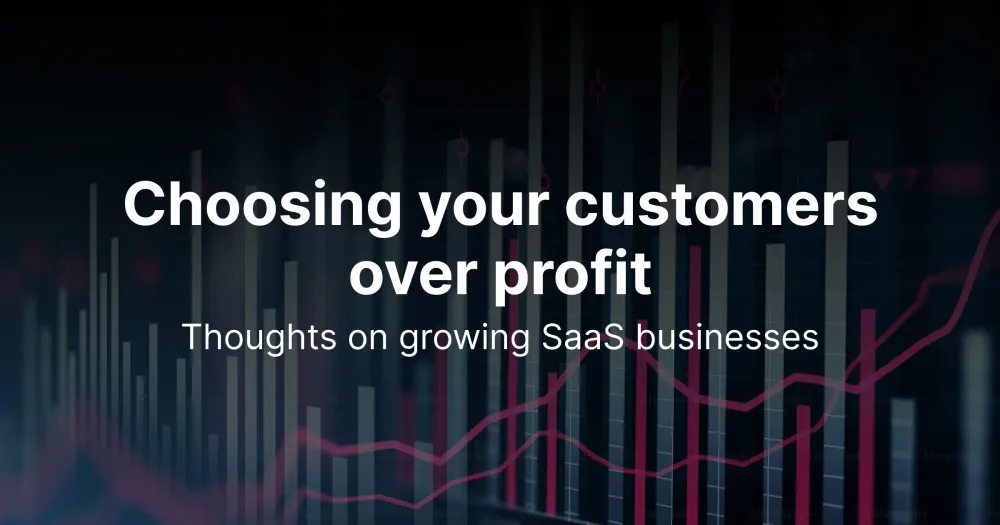Today I want to talk about the not-so-sexy part of running a business. The stuff that's often swept under the rug. Because it's not fun. And it actually eats up your revenue.
I want to talk about the cost of scaling. About choosing your customers over profit.
When my business, Magic Pages, started, it was quite unique. I took an inherently subscription-based business model – web hosting – and created a non-subscription product.
How did that work? Well, in its essence I launched a pre-sale, which generated a good stack of cash. Almost all of that was used to buy a dedicated (tech-code for "pretty f-ing strong") web server – so the monthly running costs were practically non-existent. I wrote more about that here:

Sooner or later, the resources of this server would run out though. I always knew that. But…I could just get another one. Right? Double the server capacity = double the customers.
A year ago, that was the plan I made. If I need to scale, just buy another server, configure it, and add more Ghost websites there. A year later, reality looks quite different though.
See, Magic Pages had some bigger outages in the last 2-3 weeks, leading to a downtime of around 3 hours for all customer websites. I talked about that in the last update on the Magic Pages blog:

Looking at all of these outages, they simply were a result of relying on a single point of failure. If one thing goes bust – everything's gone.
None of the events that led to these outages were actually in the control of Magic Pages – but all of them could have been avoided by not relying on a few centralised servers.
See, the single dedicated server I mentioned above, makes perfect sense from a business perspective. But not from a reliability perspective. If that server goes bust, the websites are offline. The only thing that will bring them back online is bringing the server back on. That's an easy thing to say – and it becomes quite tricky when you're hundreds of kilometres away from the physical location of your server and can't just press the power button.
That realisation made me stop in my tracks and throw all plans for growth to the side.
Yes, every business needs to grow. And often, we forget that onboarding more customers is not always the solution for that. There are still existing customers – the ones that helped build that business.
To put this into perspective, my wife Mariia and I opened bank accounts with a cool, new, innovative German online bank around two years ago. When we joined, they were still considered small. Now, they are pretty big, having added tens of thousands of new customers since.
Mariia had an issue with her account yesterday. In the past, their customer support was great – but now, they just sent standard templates, robotic replies, and didn't even consider what she wrote in the live chat at all.
When growing a business, you have a choice. Do you prioritise your customers – or your profit?
I want to choose my customers. The bank probably picked profit – by outsourcing their biggest asset, customer support, to third-party call centres.
For me and Magic Pages, a second dedicated server could be an easy solution for growth. I could onboard more customers. Double the server capacity = double the customers, right?
But instead of one single point of failure, we would then have two single points of failure. Leaving my customers behind when the lights go out in one of the data centres – for whatever reason.
Instead of that, I decided to use the revenue from the new subscription plans and re-invest it into making Magic Pages even better for existing customers.
Yes, I got that second dedicated server. But instead of ramping up marketing to quickly fill it with new websites, its only purpose is to hold a copy of the existing ones.
Overnight, the unit cost per hosted website doubled. And yet, I think it's the best decision I could have made.
Running a bootstrapped business means that I don't have to report to investors, shareholders, or anybody else. The only people I am accountable to are my customers.
Putting these new profits into a reliable infrastructure lets me sleep better at night – even though most people won't even notice.
PS: This blog is the first real-life prototype of this new setup. In tech-jargon we call it "high availability clustering". Basically, the blog is served from both of these beefy servers – so, if somebody stumbled over a network cable in the data centre of server 1, server 2 would still be there to make sure you can read this text 🎉

